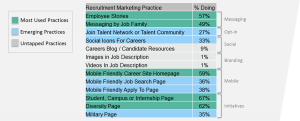Researching keywords was never easy – think one of Dante’s 7 circles – and it’s about to become worse. Well, unless you are an SEO pro, then it’s about to become aces – here’s why:
Keyword research is a complicated undertaking; even folks with exceptional digital skills admit that they are a bit lost at sea when it comes to this part of SEO. This difficulty is furthered by the fact that the stakes are so high. Get the keywords wrong and you fail.
But get the keywords right . . . and the digital world is your oyster.
To get the right keywords you need to be thoughtful about what you are trying to accomplish. You need to understand your audience and the words and phrases they search for when seeking someone like you. You also need to know which keywords are overused in your industry and whether it makes sense to focus on them or not. And finally, you need to NOT overuse the words and phrases you do decide on, as keyword stuffing is a real concern and can drive traffic away instead of TO you.
Hopefully, once your target audience arrives on your website, they’ll convert in some fashion!
Beyond understanding your audience though, and before you can focus on conversions, there are a number of SEO variables at play. Indeed, it is so complex AND so important that there is a whole industry of folks out there who will do it for you.
Going it on your own
If you insist on trying to do it yourself, SEOak has a free worksheet to help you through the keyword research process. It helps you to sort out:
- Goals of your business and website
- Keywords currently used and their rank
- How to evaluate your current keyword strategy
- How to evaluate competitors’ keyword strategy
- Choosing new keywords
Sound like a lot? It is. It’s hard work that has just become harder because Google announced that as of August 10, access to the autocomplete API is restricted.
What is the autocomplete API?
It was a way for users to use Google’s autocomplete (which predicts a user’s query as they type) to reveal powerful – and free – keyword suggestions. And Google dislikes your sneaky practices!
“We built autocomplete as a complement to Search, and never intended that it would exist disconnected from the purpose of anticipating user search queries. We want to ensure that users experience autocomplete as it was designed to be used – as a service closely tied to Search. We believe this provides the best user experience for both services.”
This means that the primary data source for many keyword research tools has been shut off. And according to Searchmetrics, without API access, research tools will have to alter their strategies – and so will you, most likely. “Presumably these [keyword research] services will have a back catalogue of data that they will be able to use, but the salient point is that from today this data will become static, and by definition historical.”
So this won’t affect most tools and users immediately, as they have likely kept a record of previous terms, but that information will soon become outdated. Will it affect you? And what will those displaced by Google’s new API restrictions do now?!
Other options?
This leaves everyone looking for a viable workaround and will likely have you looping back to sites like Searchmetrics, that offer keyword research that’s independent of Google’s API. (Unless you plan to build your own independent database, that is – which isn’t likely as it’s costly and time consuming.) They have “computer linguistic experts and many years of experience in n-gram analysis from the billions of documents [they] regularly crawl, [and] have built a solid foundation for detailed keyword research.”
Sounds like it’s good to be Searchmetrics! Or any SEO place, for that matter. Because unless Google (and others) drastically change their search algorithms, the days of the SEO expert skilled in the art of competitive keyword research are here to stay in this online world.
Solid data analysis results in great keywords that drive organic traffic to your site – and, like it or not, they’ve become table stakes at this point.
What’s your plan for sorting out keywords going forward?
Digital & Social Articles on Business 2 Community
(92)
Report Post





